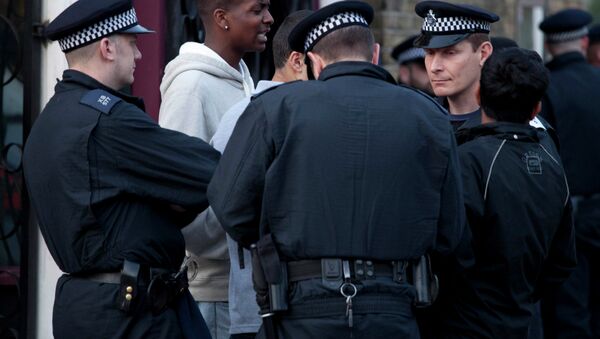Officers are currently only allowed to stop and search a person if they have 'reasonable grounds' to suspect they are carrying illegal drugs, weapons, stolen property or something which could be used to commit a crime, for example, a crowbar.
Delighted the middle classes (I guess I'm one, despite Andrew Mitchell) now recognise #stopandsearch is the most important tactic for front line police in the fight against #KnifeCrimeEpidemic (increasing broadsheet & bbc radio/TV coverage) A serious blow to May's legacy..
— Inspector Gadget (@InspGadgetBlogs) September 4, 2018
A report published by the Home Office in October 2017 suggested Black and minority ethnic (BME) groups are four times as likely to be stopped and searched compared to White people. Black people are eight times more likely to be stopped by police and searched than White people.
Only one in five searches are linked to why the individual has been stopped by police in the first place; 71 percent resulted in 'no further action' between January and March 2017, according to a government report.
#TSG utilising #Section60 #StopandSearch at #NHC2018 have recovered these and no doubt saved lives.Also officers have been threatened with being spat on! @MayorofLondon pic.twitter.com/nN1HeLh7Sl
— MetTaskforce (@MetTaskforce) August 26, 2018
In response to the announcement that police stop and search powers would be extended, London Labour MP Chuka Umunna said it "demeans" young black people.
"Lambeth, which I represent, had one of the highest rates of stop and search in the country. Stop and search has its place but too often is used in a way that demeans and humiliates young black people in particular," Chucka Umunna said.
Thread on Stop and Search:#Lambeth, which I represent, has one of the highest rates of stop & search in the country. Stop & search has its place but too often is used in a way which demeans and humiliates young black people in particular./1 https://t.co/RsqAcsd1K0
— Chuka Umunna (@ChukaUmunna) September 4, 2018
A Home Office spokesperson told London newspaper The Times, "We care looking at ways to strengthen police powers to identify individuals carrying corrosive substances."
However the expansion of stop and search powers by police could, according to academic Dr. Megan O'Neill, a police, surveillance and stop and search expert, "harm police-community relations."
"My concern is that #stopandsearch is routinely seen as a tool of prevention when it is fundamentally an investigative tool. And misuse of that tool can cause a great deal of harm in police-community relations," Dr O'Niell tweeted.
My concern is that #stopandsearch is routinely seen as a tool of prevention when it is fundamentally an investigative tool. And misuse of that tool can cause a great deal of harm in police-community relations.
— Megan O'Neill (@drmeganoneill) September 4, 2018
READ MORE: 'Tragic Example': Teenager Jailed for First UK Acid Attack Killing
Acid has become a weapon of choice among gang members because it's easy to hide from police and available to buy online. More than 400 acid attacks were recorded between November 2016 and April 2017, an average of two attacks a day.
#NottingHill
— London 999 Feed (@999London) September 4, 2018
ACID ATTACK
3 people have been injured in a suspected acid attack on Westbourne Grove #W2.
A spokesman for Metropolitan Police said: "We were called by LAS at 2.10pm today to reports of a noxious substance attack on Westbourne Grove.
There have been no arrests. pic.twitter.com/smhgABy1bV
Rachel Kearton, assistant chief constable of Suffolk Police and National Police Chiefs Council lead on corrosive attacks recently said the UK had the highest rates of acid-related crimes — yet the real number remains hidden.
"The UK now has one of the highest rates of recorded acid and corrosive substance attacks per capita in the world and this number appears to be rising," Rachel Kearton told reporters in London.
During a spate of acid attacks last summer, police officers in London were given emergency acid response kits including water and protective equipment to treat victims on the scene.
There have been 104 acid attacks in London between January and May this year, according to statistics obtained by Vice.
READ MORE: Five Men Charged in 'Absolutely Pure Evil' Acid Attack on British Toddler


